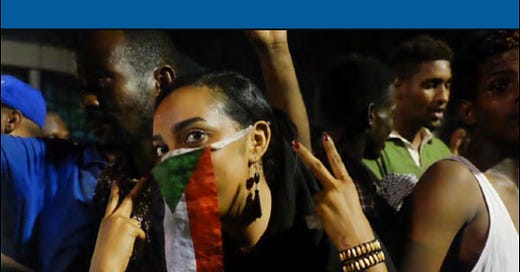Welcome to Abu Aardvark’s MENA Academy Weekly Roundup! Every Friday, I will post about recent academic publications that caught my eye. There’s so much good work out there that deserves attention. I’ll try and highlight the best of them. I hope you find these recommendations useful!
SPOTLIGHT
MENA Politics: Newsletter of the MENA Politics Section of APSA 5, no.1 (2022). After serving as editor in chief of this section newsletter for three years, I handed over the reins to the stellar new editorial team of Nermin Allam, Gamze Cavdar, and Sean Yom. The first issue in their three year term came out this week, and it’s full of fascinating contributions.
First, Noora Lori and Lisel Hintz organized a roundtable on subnational politics, spanning both zones of democracy and of authoritarianism across the MENA region. The symposium engages with the broader trend in the discipline towards studying subnational and local politics, locating the granular and often inconsistent ways in which citizens experience the state. The symposium features contributions by Dana el Kurd (Qatar), Andrew Leber (Saudi Arabia), Haian Dukhan and Ali Aljasem (Syria), Shamiran Mako (Iraq), and Sean Lee (Israel/Palestine).
Second, a symposium examines Sudan’s politics at a pivotal historical moment. I was especially delighted to see this topic covered, since Sudan has long been neglected by Middle East Studies (and by African Studies) and has so many neglected comparative insights to offer (Khalid Medani’s recent book comparing Islamism in Egypt and Sudan illustrates really powerfully how fruitful such comparisons can be - listen to me talk with him about it on my podcast here). This symposium features an all star cast: Mai Hassan, Harry Verhoeven, Willow Berridge and Sharath Srinivasan.
The Newsletter wraps up with a roundtable discussion of Aili Tripp’s book Seeking Legitimacy, with contributions by Valentine Moghadam, Carolyn Barnett and Meriem Aissa. Tripp’s book explores why autocratic regimes in the Middle East sometimes promote women’s rights, focusing on North Africa (you can listen to me talk with her about it on my podcast here).
Noteworthy Publications
Sharan Grewal, “Norm Diffusion Through US Military Training in Tunisia,” Security Studies. Grewal argues that the US military has been diffusing distinctive political norms among Tunisian officers through its training. But rather than inculculating norms of an apolitical professional military, he argues that the US military has been spreading norms of political partisanship. He uses two original surveys to support his argument, along with interviews. It speaks to a growing literature on the effects of US military training on the propensity for military coups (seen across Africa in recent years), while also turning on its head the idea that foreign training would instill professionalism and reinforce civilian control of militaries.
Guiseppe Acconcia, Aurora Perego, and Lorenza Perini, “LGBTQ activism in repressive contexts: the struggle for (in)visibility in Egypt, Tunisia and Turkey,” Social Movement Studies. This study of the adaptive behavior of the LGBTQ communities during and after mass protests in 2011 and 2013 highlights the tension between visibility and invisibility for highly at risk populations. Digital technologies are a double edged sword for engaging in such activism - an issue of ever growing importance given the rise of digital authoritarianism and surveillance, as with police using Grindr app data to identify and prosecute LBGTQ citizens. Pair this article with John Nagle and Tamirace Fakhoury’s book on queer activism in Lebanon (and listen to our podcast conversation here).
Stephane Lacroix, “Egypt’s Salafi Awakening in the 1970s: Revisiting the History of a Crucial Decade for Egyptian Islamic Activism.” Religions. This article reinterprets the rise of Salafism in Egypt by moving beyond the role of Saudi funding and labor remittances to focus on an earlier history of Salafi activism which laid the groundwork for this distinctive religious community. I’d read anything by Stephane Lacroix, and this article doesn’t disappoint. It’s part of a special issue of Religions edited by Brynjar Lia and Bjørn Utvik, full of fascinating research on a wide range of topics; I’d highly recommend the whole collection.
Thanks for subscribing to Abu Aardvark’s MENA Academy!




